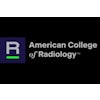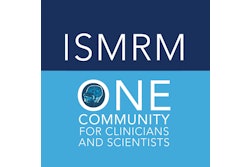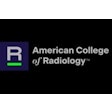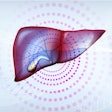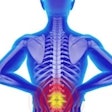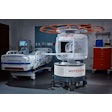TORONTO - Earlier this year, the Canadian government bestowed $1 billion (U.S.) on the radiology community for the purchase of new and updated imaging equipment. But the current outbreak of SARS in the Toronto area has many radiologists wishing they had access to those new scanners right now.
Severe acute respiratory syndrome (SARS) is having a huge effect on imaging across the region, with radiologists struggling to keep up with SARS-related demand while dealing with restricted access to care and the cancellation of many non-emergent services.
"Essentially, the healthcare system is really in gridlock," Dr. Mark Prieditis told AuntMinnie.com. Prieditis is chief of imaging for the Rouge Valley Health System, and executive vice president of the Ontario Association of Radiologists, both based in Toronto.
The first SARS patients began appearing at Toronto hospitals in late March, and since then the Ontario provincial government has moved aggressively to try to contain the disease by quarantining both patients and healthcare workers believed to have been exposed.
As a result of the quarantines, hospitals are operating at between 10%-25% capacity, Prieditis said, adding that "the only work that can be done is urgent work." He estimated that thousands of routine imaging procedures -- such as fetal ultrasound exams -- are being delayed.
As of April 15, the SARS outbreak in Toronto had claimed 13 lives; Health Canada reported that there were 296 suspect or probable cases across the country, although most were in the Toronto area. Among those affected have been healthcare workers: Infection control specialist Alison McGeer of Mt. Sinai Hospital, who was the first to sound the alarm in Canada, is recovering from the disease.
Worldwide, China, Hong Kong, and Singapore are also battling the SARS epidemic. Australia has reported a number of cases, and, on Thursday, India identified its first SARS case. To date, air travelers have carried the virus to 23 countries, infecting more than 3,400 people and killing about 160.
According to Prieditis, a handful of imaging specialists in the Toronto area contracted the disease -- caused by a new coronavirus -- despite not being on the front lines of SARS care and control. All of these people are recovering, he said.
Being short-staffed and short of equipment makes a tough job even harder for radiology departments contending with SARS. Imaging plays a minor role in SARS diagnosis, but a greater role in monitoring the progress of the disease, Prieditis said.
"Clearly, the main thing at this point (for diagnosis) is the clinical and epidemiologic history," he said.
The trouble with SARS is that it mimics other respiratory illnesses, so that radiologists may first interpret an x-ray or CT scan as indicative of ordinary pneumonia or adult respiratory distress syndrome (ARDS).
"The appearances are completely nonspecific," said Dr. Mark Quigley of the suburban Credit Valley Hospital.
The progression from what looks like classic pneumonia to ARDS is considered a sign that the patient is actually suffering from SARS. However, the latter disease doesn't always follow such a clean-cut course, Prieditis said.
Dr. Sheila Basrur, Toronto’s medical officer of health, recently declared the current SARS outbreak to be "contained...there’s not an avalanche of new cases coming in." But radiology departments must still sort out the avalanche of imaging studies that were put off for a later date.
Quigley estimated that his 350-bed community institution is "thousands" of cases behind. "And that’s just one department in one hospital," he said. For example, 40 to 50 fetal ultrasound exams are performed each day at Credit Valley Hospital. But all of these sonograms have been postponed over the last month, Quigley said, which could be problematic as these exams are most useful when performed at 18-20 weeks of fetal gestation in order to assess for potential abnormalities.
In addition, many of the infection-control precautions that have been put in place since the beginning of the outbreak may become permanent, Prieditis predicted. "It won’t ever be business as usual again," he said. "As soon as you lower your guard with this disease, it can break out again."
For now, SARS hasn’t taken its toll on all aspects of imaging: The International Society for Magnetic Resonance in Medicine (ISMRM) conference is still scheduled to be held in Toronto from May 10-16.
By Michael SmithAuntMinnie.com contributing writer
April 18, 2003
Related Reading
U.S. health workers seek better SARS protection, April 17, 2003
Guideline advises on management of SARS, April 9, 2003
SARS prompts cancellation of major oncology meeting in Toronto, April 3, 2003
Hong Kong hospital posts SARS protocol, March 25, 2003
Canadian radiologists push for accountability in equipment purchasing, February 27, 2003
Copyright © 2003 AuntMinnie.com
